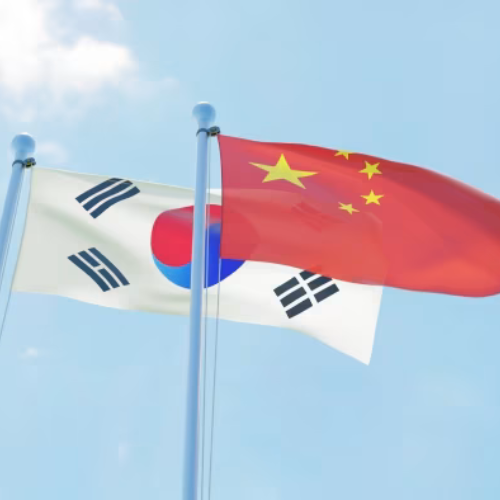Recently, a South Korean citizen faced detention in China on suspicion of espionage. This situation has drawn a lot of attention because it is the first time a South Korean national has been subjected to detention under a strict law against spying that was put in place last year. The Chinese government announced the detention but did not share specific details about the individual or the exact charges.
Details of the Detention
The South Korean individual was taken into custody by Chinese authorities while living in a city called Hefei. This city is located in the eastern part of China and is known for its growing technology industry, especially in semiconductors, which are tiny chips that power many electronic devices. The person arrested is believed to have previously worked for a well-known South Korean electronics company before moving to a Chinese chip firm.
According to reports, this individual is suspected of leaking sensitive information related to semiconductors to South Korean authorities. Semiconductors are crucial for making smartphones, computers, and many other devices, so any information about them is very valuable. China has been working hard to become self-sufficient in this technology, especially since the United States started limiting the export of advanced chips to China.
Leticia Zheng Exposed in Sinister 7-Year Chinese Espionage Operation at the University of Florida
The Chinese government, which takes national security very seriously, views information leaks as a major threat. They want to protect their technology and ensure that it does not fall into the hands of other countries, especially those they see as competitors, like South Korea and the United States.
Impact on South Korean Companies
This detention is particularly concerning for South Korean businesses that operate in China. Many South Korean companies, including large electronics firms, have significant investments in the country. The detention of a South Korean citizen for espionage could make these companies think twice about their operations in China. It raises fears that they could also become targets of similar accusations.
Foreign Espionage Poses a Risk to China’s Space Research and Scientists
There is a history of other countries’ citizens being detained in China for similar reasons. For instance, some Japanese expatriates left China after one of their own faced espionage charges. This creates an uneasy atmosphere, making it difficult for foreign companies to feel safe while doing business in China.
As South Korea continues to improve its technology and compete in the global market, incidents like this detention can have lasting effects on how countries interact with each other. Businesses may worry about their employees’ safety and whether they could be accused of wrongdoing simply for working on technology that China sees as important.
Broader Implications
This event is not just about one person; it reflects a larger trend in international relations, especially concerning technology. Since the U.S. began limiting exports of advanced chip technology to China in 2020, China has responded by investing heavily in its semiconductor industry. They aim to develop their technology and reduce dependence on foreign companies.
Aliia Roza Unveils the Intriguing World of Sexpionage and Betrayal
China’s new counter-espionage law, under which the South Korean citizen was detained, is part of this effort. The law, which came into effect in July last year, gives Chinese authorities more power to crack down on suspected spying activities. It shows how seriously China is taking national security, particularly in industries like technology, which are vital for economic growth.
The detention of the South Korean citizen underlines the growing tensions between China and South Korea in the tech sector. The concerns over espionage and the protection of intellectual property rights are becoming more prominent as countries strive to secure their technological advancements. While this news is alarming for many, it highlights the complicated relationships that exist in today’s global economy.
The situation remains fluid, and further developments will continue to shape the landscape of international business and diplomacy, especially in the high-stakes world of technology and innovation.


